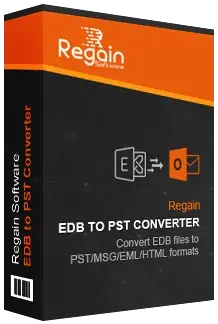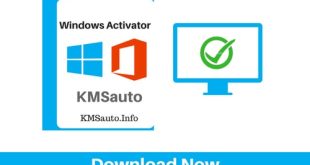If you’re a Microsoft Exchange and Outlook user, you’re familiar with the EDB (Exchange Database) and PST (Personal Storage Table) file formats. But if you need to switch from one format to another, how do you go about it?
There are several methods to convert EDB files to PST format. This post will explore various methods for converting EDB files to PST. In different scenarios, we’ll look at tools such as Microsoft’s Ex Merge utility and manual processes. Read on to find out more!
What is an EDB file?
An EDB file is a database file used by Microsoft Exchange Server. It stores all the data for your Exchange account, including emails, contacts, calendar entries, and more. If you need to convert your EDB file to PST format, you can use a few different methods.
Microsoft provides a utility called the Exmerge tool to export data from an EDB file to PST format. However, this tool is difficult to use and is only sometimes reliable.
Several third-party tools are also available to convert EDB files to PST format. These tools are often easier to use than the Microsoft utility and may provide better results.
If you have access to the Exchange Server, you can also use the built-in export features to export data from the EDB file to PST format. This method may be the easiest way to convert your data, but it requires access to the Exchange Server.
Features of EDB to PST Converter:
The EDB to PST converter tool comes with several features that make it an essential tool for users who need to migrate their Exchange Server database files to PST format. Some of the key features of the EDB to PST converter tool are:
- Easy to use interface: The EDB to PST converter tool comes with a simple and user-friendly interface that makes it easy for users to navigate and use the tool.
- Fast and efficient conversion: The EDB to PST converter tool is designed to convert EDB files to PST format quickly and efficiently, without losing any data or information.
- Selective conversion: The EDB to PST converter tool allows users to select specific mailbox items that they want to convert to PST format. This helps users to save time and disk space by only converting the data they need.
- Preview feature: The EDB to PST converter tool comes with a preview feature that allows users to preview their mailbox items before converting them to PST format. This helps users to ensure that they are converting the right data.
- Compatibility: The EDB to PST converter tool is compatible with all versions of Exchange Server and Microsoft Outlook.
How EDB to PST Converter works:
The EDB to PST converter tool works by converting Exchange Server database files (EDB files) to Outlook PST format. The conversion process involves the following steps:
- Select the EDB file: The first step in using the EDB to PST converter tool is to select the EDB file that you want to convert to PST format. You can either browse your local system or network to locate the EDB file or use the ‘Find’ option to search for the file.
- Preview mailbox items: Once you have selected the EDB file, the tool will start scanning the file to extract the mailbox items. You can then preview the mailbox items, such as emails, contacts, calendars, and other vital information.
- Select specific items: If you want to convert specific mailbox items, you can select them using the ‘Select Items’ option. This feature allows users to convert only the required data, saving time and disk space.
- Select PST format: After selecting the mailbox items, you can choose the PST format in which you want to save the data. The EDB to PST converter tool allows you to save the converted data in multiple PST formats, such as Unicode and ANSI.
- Save the converted data: Finally, you can save the converted data to the desired location on your local system or network. The EDB to PST converter tool will save the data in the PST format you have selected, ensuring that all mailbox data is retained.
How to convert EDB files to PST format?
You can use a few methods to convert an EDB file into a PST file. One common method is to use the Exchange Server Migration tool. You can get it in the Microsoft Exchange Server administration center.
Another method is to use a third-party software application, such as Regain EDB to PST converter. You can use this software to convert an EDB file into a PST file without losing any data.
Though many third-party tools are available to convert EDB files into PST files, only some of these tools are created equal. Some may only handle some EDB files, while others cannot convert the file correctly. That’s why it is important to research before choosing a tool to use.
How to choose the right third-party tool for converting EDB files?
When looking for a reliable and effective EDB to PST converter, it is important to consider a few things.
First, the converter should be able to handle all types of EDB files, including those created in different versions of the Exchange Server. Second, the converter should be able to handle both Unicode and ANSI characters.
One tool that has been getting good reviews from users is Regain EDB to PST Converter. This tool is designed to work with all EDB files, including those created in different versions of the Exchange Server. It can also handle both Unicode and ANSI characters.
Pros and Cons of manual methods
There are a few pros and cons when deciding if a manual method is a right choice for converting your EDB files to PST.
Pros:
- You have control over the entire process and can ensure that all data is converted correctly.
- Manual methods often allow you to select which data you want to convert, giving you more flexibility.
- You can convert multiple EDB files simultaneously with manual methods, saving time.
Cons:
- Manual methods can be time-consuming and require technical knowledge.
- If data is not converted correctly, it can lead to data loss or corruption.
EDB to PST converter is a software tool that helps users to migrate their Exchange Server database files (EDB files) to Outlook PST format. The EDB files are a vital component of the Exchange Server as they contain all the mailbox data, such as emails, contacts, calendars, and other vital information. However, in certain situations, users may need to convert EDB files to PST format. This may be due to several reasons, including the need to move data to another email platform or to backup mailbox data in a format that can be easily accessed and searched.
Conclusion
This article discussed several methods for converting EDB files to PST. These methods range from manual approaches such as ExMerge, Export and Import Wizard in Outlook, and third-party applications. the Exchange Admin Center (EAC) and Exchange PowerShell are native tools provided by Microsoft, while third-party EDB to PST converter tools are available in the market. Users can choose the method that suits their requirements and skill level. The EAC method is suitable for exporting mailbox data of a few users, while the PowerShell method is useful for exporting mailbox data of several users. Third-party EDB to PST converter tools are useful if you want a fast and efficient solution to convert EDB files to PST format. No matter what method you choose, follow all instructions carefully so that your data remains secure throughout the conversion process.
Know more: convert edb to pst
 Posting Point
Posting Point

